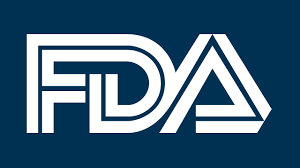The pharmaceutical industry is undergoing a transformation in supply line management, driven by regulatory changes. Many of these are seen as costly, an additional burden on the production sector, which may trigger a crisis further down the line.
Opportunity in crisis
In Mandarin, the most widely spoken language in China, the word crisis comes from combining the terms; danger and opportunity. When we consider the changing landscape imposed by regulatory adjustment, the most common perception is that a situation of risk is emerging – such as the costs of these adjustments as well as the potential losses in the production and distribution lines during the process of implementing these changes. Therefore, the key element that differentiates us in these moments is the ability to think of a crisis situation as an opportunity.
Within these changes imposed on pharmaceutical companies, the ability to individually identify each item produced or purchased becomes an excellent opportunity to bring incredible benefits to companies. Although seen at first as a risky prospect, this new situation becomes an opportunity when we consider that serialization, responsible for the visibility of the entire supply chain, was merely a possibility in management and administration theories previously.
Nowadays, however, the prospect of creating networks that allow data sharing and access to basic information, such as origin, location, and components of the drugs, will guarantee brand value gain for companies in the industry; reflecting growing consumer confidence.
The managerial dream

For conventional managers, the possibility of creating a complete management system that stores information from one end of the production chain to the other, in a fast and agile way, is unfeasible. Many understand that the technologies required to implement the control mechanisms may result in high costs and increased bureaucracy.
One way to change the understanding about the importance of an integral management and control system, is to understand some of the positive impacts it can have on the company. Remember that this short list is only a part of what can be achieved, given that the scope of improvement is only limited to the managers’ creativity.
From the laboratory to the consumer
The quality and assurance of pharmaceutical products has become an increasingly present question among consumer-patients when buying a medicine. This demand is related to the increase in counterfeits, which are becoming more sophisticated and occupying more space on the market, making it more necessary than ever to prove the origin of the drugs.
To avoid the consumption of counterfeit drugs, it is possible to use codes printed on the packaging, which, when scanned, allow access to information such as its origin, its components and other necessary information to attest the quality of the medicine. Beyond providing access to information, the codes printed on the packaging allow the creation of direct communication channels between producer and consumer.
This dataset is stored throughout the entire production and distribution process and enables quick responses to any problems that may arise, such as when a recall is necessary. This individual registration of products allows the transmission of correct and adequate information to each consumer who may have been affected.
On the other hand, the data stored via the control systems can benefit medical research, which will be discussed a few paragraphs ahead, and treatment personalization. In an era of constant and rapid transformation in consumption patterns, pharmaceutical companies will be evaluated by their ability to respond to the demands of those who consume their products.
Pharmacies
Considering the usual control mechanisms, pharmacies, responsible for distribution at the end of the chain, are able to control stock in lots, not individually. In other words, the current inventory management systems do not allow them to accurately identify the status of all items.
TrackTraceRX, with its solutions for serialization and traceability, can identify the individual products in stock, ensuring improved management and control.
Wholesalers
The wholesaler is the responsible agent, within the distribution chain, for performing the end routing of products. Therefore, of all areas of the production process, this is the sector that can benefit most from having serialization systems.
Yet, many companies still believe that implementing serialization systems leads to a decrease in operational speed, which is a misconception. With a good serialization system, the industry can transmit comprehensive information about a particular batch of prescription drugs quickly.
Instead of having to scan each product individually within a lot, with the solutions offered by TrackTraceRX it is now possible to generate a code containing the information of each individual drug that is part of the lot. This is the process of information aggregation; very important to have access and control over the products even after they are distributed.
In situations of audits and reverse logistics, the possibility of access to this information proves to be very important, besides, as previously mentioned, it benefits the relationship between buyer and distributor.
Industry

For industry, the benefits of serialization are greater than simply complying with regulatory obligations. Considering the entire production process, control and management systems based on serialization allow visualization of all production stages, accessing diverse and different information in a simplified way.
It is also possible to utilize the data gathered to establish differentiated pricing strategies according to geographical region. Another advantage is better stock control, including between pharmacies and wholesalers, and reverse logistics.
The research sector
As mentioned before, the medical research and pharmaceutical industry can benefit from implementing serialization. This potential is associated with pre-authorized access to physician and patient data, which allows treatments and drug handling to be customized. Information such as drug dosages, frequency of use, and side effects can contribute to studies on new lines of treatment.
Opportunity over imposition
Serialization, when only understood as a governmental imposition will not bring any benefits to industry. This vision, plastered in traditionalist approaches, hinders the improvement of production, distribution, and sales processes.
The benefits, as discussed, reach all three levels and can be converted into real gains with reduced costs and increased sales. To benefit, however, you need to be at the forefront, to stand out among your competitors. So get to know TrackTraceRX’s solutions!
{{cta(‘c53b7ee2-ee57-447b-89ef-0e1eddd533c0’)}}




